This universe is apparently still in its expansion phase.
It was officially announced this week that Concrete Revolutio is going to be a split cour series, though of course if you’ve been following the posts here that will come as no surprise to you. It’s a damn good thing, too, because I shudder at the thought of any series trying to explain all the confounding riddles this one has posed in one episode. I’m going to be looking forward to the spring cour with intense curiosity, because I really want to see where Aikawa and Mizushima intend to take this fascinating and perplexing story – and if any of the guesses I have about its direction were right.
The irony about this week’s episode is that if I’m not mistaken it was the first the didn’t jump around in the timeline, yet it may very well have been the most confusing yet. There are really two reasons for this, the first being that the series continues to expand the mythology further and further, and the second being that it very rarely bothers to explain anything. My working theory, as you know, is that the first cour is all about asking and the second will be all about answering – but I’m basically taking that on faith at this point.
Who is Claude – apart from the obvious fact that he’s played by the unmistakable Seki Tomokazu? He’s yet another vigilante – a superhuman doing evil in what he believes is the interest of good. This archetype is a common one in Concrete Revolutio, which is veritably obsessed with exploring moral relativism and idealism. He’s also most likely the boy in this picture with the young Jirou – though if we’ve been given any clue whatsoever who that boy is (or how it is that Kikko would know him) I don’t remember it.
As usual there are all sorts of big ideas percolating through the events of this episode. Is the definition of “superhuman” used by the bureau indeed too liberal – given that they classify the likes of ghosts and onii in a group that in theory should be limited to humans (albeit “super” ones)? It’s not a bad argument in logical terms by any means, even if it comes from a rather dark place. Do all heroes – indeed, all people who fight for any cause – do it for one of peace, justice or freedom? And are these ideals mutually exclusive (I would argue not, at least some of the time).
In addition to that, we get a couple of new plot wrinkles to chew on as well. We meet the “Sciencers”, who appear to be a riff on Clarke’s Third Law (any sufficiently advanced science is indistinguishable from magic). We also get an unexpected – and quite unexplained, naturally – transformation from Kikko, which appears to take place after she eats raw ginger. She becomes some sort of demon queen, it seems, though what import this has to the story is still unstated. And there’s a very disturbing sequence that demonizes the U.S. military in perhaps the most direct manner yet – a “superhero submarine” that seems to be quite literally powered by superheroes embedded into its machinery.
Honestly, I have no idea how all this is going to fit together. That fact is still on the right side of the exhilarating/exasperating line, though it’s definitely close enough to the line to read the small print – and the fact that we’re getting that second cour pushes the line a little farther out. The second cour is going to tell everything with Concrete Revolutio – if indeed there is an endgame out there that’s going to tie up these threads, the series could go down as a work of real genius. But if not, ultimately I think it will be remembered as an interesting mess.


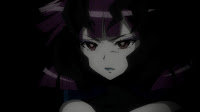
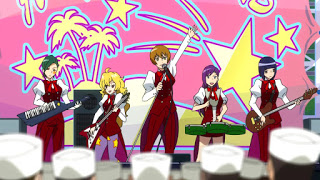
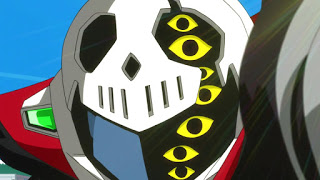
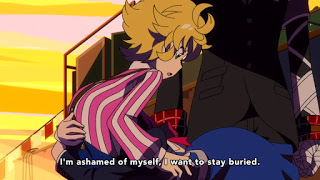
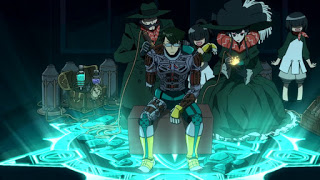
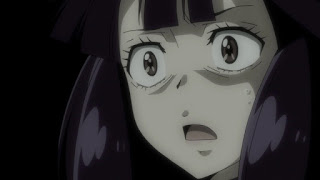
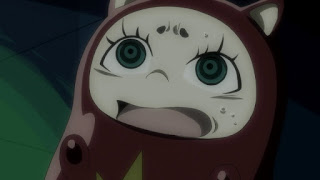
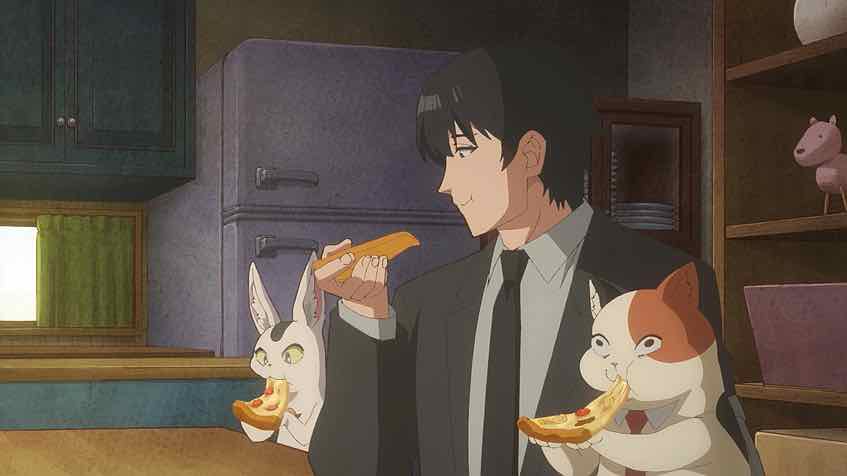
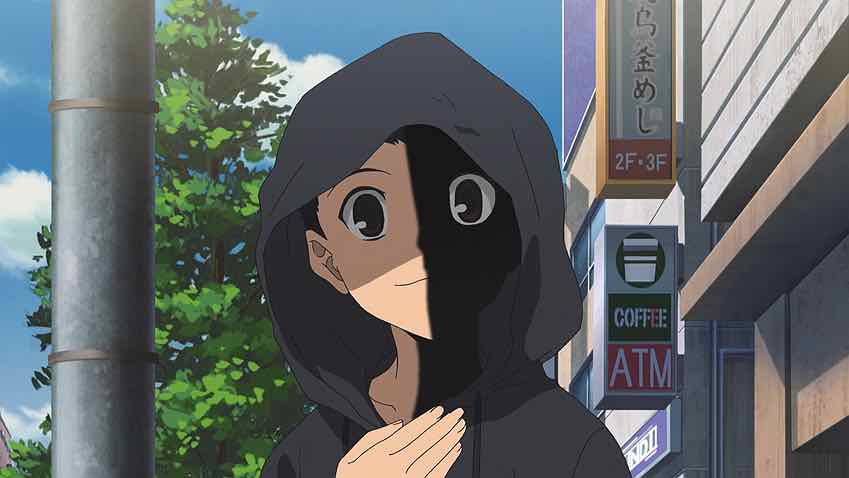
Kamui
December 14, 2015 at 1:09 pmThis was the first episode that I felt that was deliberately made to confuse you. The ones that came before were a "mess" but there was some kind of thread that, if you looked hard enough, you could follow.
Justice, peace and freedom are at odds with other more often than not. Killing an entire country that is filled with evil people would be justice, but it won't bring peace nor it respects one's freedom. I admit that my example is extreme, but it drives the point home nicely.
Infinity Stop
December 19, 2015 at 4:55 pmNo no, Enzo, her transformation is neither unexpected nor is it (at least not completely) unexplained.
They mentioned before that Kikko is a demon who is collecting souls. And she was also banished from her realm in which she will become a queen because she didn't use her powers for the "good" (whatever that is) of human beings. All of this was mentioned before.
Also, since Ullr (was that his name?) said the two of them come from another dimension and were sent to another layer, and since time travelling is an established concept in this series, it's pretty obvious that Kikko comes from the future, though she might be creating a paradox now. In this episode as well, there were two different Claudes, if you paid attention.
Well, this is speculation on my part, but since Kikko always says to Jiro "you called me that again", "so like I thought, you are…" and the very first episode hints at the fact that something with her love went wrong there ("to love is to never regret") and lyrics do just the same thing, Kikko most likely knows Jiro from the future.
The comment with the definition about Superhumans – well, I understood it this way: there are humans that evolved into Superhumans, but there are also time-travellers, aliens, magic-users and demons (Ullr mentioned all of these groups in episode 2 already). So Superhumans in its real sense are only a small group inside of beings that are somewhat different from normal humans. That was the point of the definition issue I think.
Infinity Stop
December 19, 2015 at 5:29 pmAh, forgot to mention that Kikko also mentioned before that she as well has a beast inside of her and that she is fighting it and holding it back. Random sentences in CR appearantly aren't "random" 😉